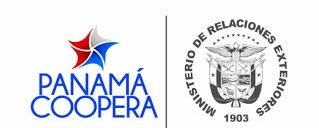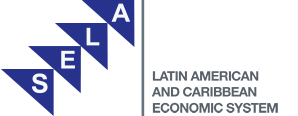BACKGROUND
The Meeting of International Cooperation Directors for Latin America and the Caribbean has been organized annually within the framework of SELA since 1987, as a space for encounter for directors and cooperation agencies of the countries of Latin America and the Caribbean, for the exchange of ideas, experiences and best practices on various topics of importance on the agenda for cooperation and development assistance, from the Latin American and Caribbean perspective.
The Latin American Council of SELA has taken two decisions that have strengthened this event. In 1983, Decision No. 156 appointed the organization as “Regional focal point for the exchange of information on TCDC”, and in 2012, Decision No. 538 referred to the “Meetings of International Cooperation Directors of Latin America and the Caribbean”, in which the Latin American Council took note “with satisfaction, of the activities carried out by the Permanent Secretariat in the field of international cooperation, and especially those developed through the meetings of International Cooperation Directors for Latin America and the Caribbean”. It also recognized the support provided by the Group of 77, through the Pérez Guerrero Trust Fund (PGTF), to the Permanent Secretariat to conduct these meetings and urged it to continue providing such valuable support with a view to further promoting the analysis and treatment of high priority issues on the international cooperation agenda and South-South Cooperation from the Latin American and Caribbean perspective.
For 2017, the XXVII Meeting of International Cooperation Directors plans to discuss the subject “Cooperation for intellectual property in Latin America and the Caribbean”. This event will be co-sponsored by the Perez-Guerrero Trust Fund (PGTF) of the Group of 77.
Intellectual property is being addressed within the framework of the regional and subregional cooperation mechanisms as a matter of high priority for industrial development and the productive transformation and integration. In the Andean Community (CAN), the Common Regime on Intellectual Property (Decision 486) of the year 2000 regulates the granting of trademarks and patents, and protects industrial secrets and denominations of origin. In the Central American Integration System (SICA), the signing parties of the Protocol to the General Treaty on Central American Economic Integration (1993) agree to harmonize national legislations in the area of intellectual and industrial property. In the Caribbean Community (CARICOM), the Treaty of Chaguaramas (1973) defines the need for protecting property rights. In 1995, the Common Market of the South (MERCOSUR), with the aim of “promoting effective and adequate protection of intellectual property rights in trademarks, indications of provenance and designations of origin”, decided to create the “Protocol on Harmonization of Standards on Intellectual Property” in the field of trademarks and indicators of origin and designations of origin. In turn, on 8 October 2015, the Member countries of the Pacific Alliance (AP),”recognizing that the adequate protection of industrial property and access to it represent a determining factor to spur regional development", signed the Joint Declaration of the Offices of Intellectual Property of the Pacific Alliance.
At the regional level, the Community of Latin American and Caribbean States (CELAC), at the II Meeting of High-Level Officials in Science and Technology (2014), established Working Groups on Human Talent and Knowledge Management. Likewise, in the Declaration of Belén (paragraph 14), stemming from the III Summit of Heads of State and Government of the CELAC, held in Costa Rica in 2015, a recommendation was made to strengthen the commitments in the area of technology transfer, financing and access to information, and intellectual property rights.
At the international level, within the framework of the 2030 Agenda for Sustainable Development, adopted in 2015, objective 9 on Sustainable Development (industry, innovation and infrastructure) establishes the need to “encourage innovation”, specifically through an increase in scientific research and the enhancement of the technological capabilities of the industrial sectors, particularly in developing countries. Objective 17 (partnerships to achieve the objectives) calls for the collaboration among governments, the private sector and the civil society for mobilizing and reorienting resources depending on the compliance with the objectives of sustainable development by the year 2030.
Considering the importance of the issue of intellectual property at present because of its impact on the industrial and technological development, innovation, science and technology and entrepreneurship, it was deemed appropriate to examine cooperation in the area of intellectual property in the countries of Latin America and the Caribbean.









